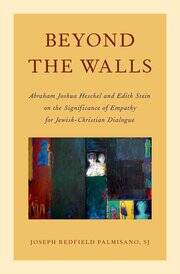Cambridge, MA. On Christmas Day, Joseph Redfield Palmisano, S.J., died at Campion Center, the Jesuit health facility in Weston, MA., brought down finally by a brain tumor. Joe, a Boston College graduate, had worked as a Jesuit in Jamaica, given retreats at Eastern Point Retreat House (Gloucester) and studied for his degree at Trinity College in Dublin, at the Irish School of Ecumenics. But slowly, in the past few years, he had slowed down. He had just turned 41 when he died.
His funeral on Dec. 30 was a moving—sad, reflective, joyful—event that brought together his parents and brother, family and friends, at least 100 Jesuit concelebrants and a standing-room only congregation in the Jesuit chapel at Campion. Robert Levens, S.J., the Rector at Campion and presider at the Eucharist, Anthony Soohoo, S.J., the homilist, and many of us in conversation before and after the Mass, testified to how Joe radiated warmth and graciousness, simplicity and openness, a natural ability to get along with everyone and readiness to help others, a deep faith and companionship with Jesus and his fellow Jesuits, and, in his final illness, an edifying patience and surrender of his life into God’s hands, just after turning 41.
I knew Joe since he was an undergraduate at BC, but many knew him deeper and better than I over the years. The last time we had lunch together was two years ago. So all I can add here is a testimony to his contribution to interreligious dialogue, and specifically to building on the Second Vatican Council’s great heritage of closer and deeper relationships between Christians and Jews. His impressive book, Beyond the Walls: Abraham Joshua Heschel and Edith Stein on the Significance of Empathy for Jewish-Christian Dialogue (Oxford University Press, 2012) explored the vital movements that have and must underlie Jewish-Christian encounters in our era. Throughout, Joe reminds us, the dialogue must be nourished by empathy—a deepening communion with our Others, an intuitive connection that allows us to glimpse respectfully how they see themselves, a coming to be of friendships that change us and create for us a new home together. This is where the Jewish-Christian conversation can lead, if we understand what is possible and at stake.
Joe spells out the dynamics of this empathy in a sensitive and expertly researched portrayal of Edith Stein (1891-1942), a convert to Catholicism and nun who died in Auschwitz. As he puts it, drawing on her wisdom:
In turn, he brings her vision of human and humane connectedness into conversation with that of Rabbi Abraham Joshua Heschel (1907-72), a Polish-born American rabbi and one of the leading Jewish thinkers of the 20th century:
Joe observes, “Notice the correspondence between Heschel’s and Stein’s perspectives. ‘I’ imaginatively project ‘myself’ towards the Other in prayer. And just as one rises to the ‘greatness’ of the words in the prayer of empathy, we rise to the greatness of the other when our prayer becomes the deed of a living empathy (71).
The book was well noticed and received very favorable reviews. See for instance the review by Zeb Garber or by Brenna Moore here in America.
Certainly, Joe might have influenced several generations of students on campus, opening for them the way of dialogue. And where might Joe's deep study and humane, spiritual learning have led him, in a next book or books on the Jewish-Christian encounter and communion? For one thing, he would have kept reminding us who are Christian to be courageous and humble in rediscovering ourselves in giving thanks for the Jewish roots of our Christian faith, that we might all the more deeply discover in Jews our neighbors and friends, our elder sisters and brothers. Near the book’s end he voices an insight that bears study in the over-heated political arena of 2016:
And so, there can be no demonization or exclusion of the Other, as if the borders might be closed: “If a person is an end in him/herself, then the goal of every stakeholder regarding an interdependently minded way of proceeding will only be realized insofar as the different dialogue partners become vulnerable for one another through the drama of embrace.” (146) But deep and demanding virtues are then needed, since at times it will not be easy:
And so the work lies before us who continue:
Presence to one another; an empathy that is also listening; waiting; solidarity with the powerless—all brings us full circle, back to Joe himself, the person and Jesuit. In his short life he exemplified, that is to say, the very ideal of the scholar whose thinking and writing stand in harmony with his praying, living, being. The book leads to the man, the man to the book.
Scholars like Joe are rare indeed, and the church needs more such women and men if we are to live up to the invitations and challenges of Vatican II and our ongoing dialogue with the Jewish people. For this reason too, among so many others, we will sorely, sadly, miss the voice and writing of this promising thinker, scholar, teacher, so deeply committed to the building of a 21st century Jewish-Christian understanding and friendship. Perhaps right now, though, might he not be sitting with Edith Stein and Abraham Heschel, in the communion that does not end?







